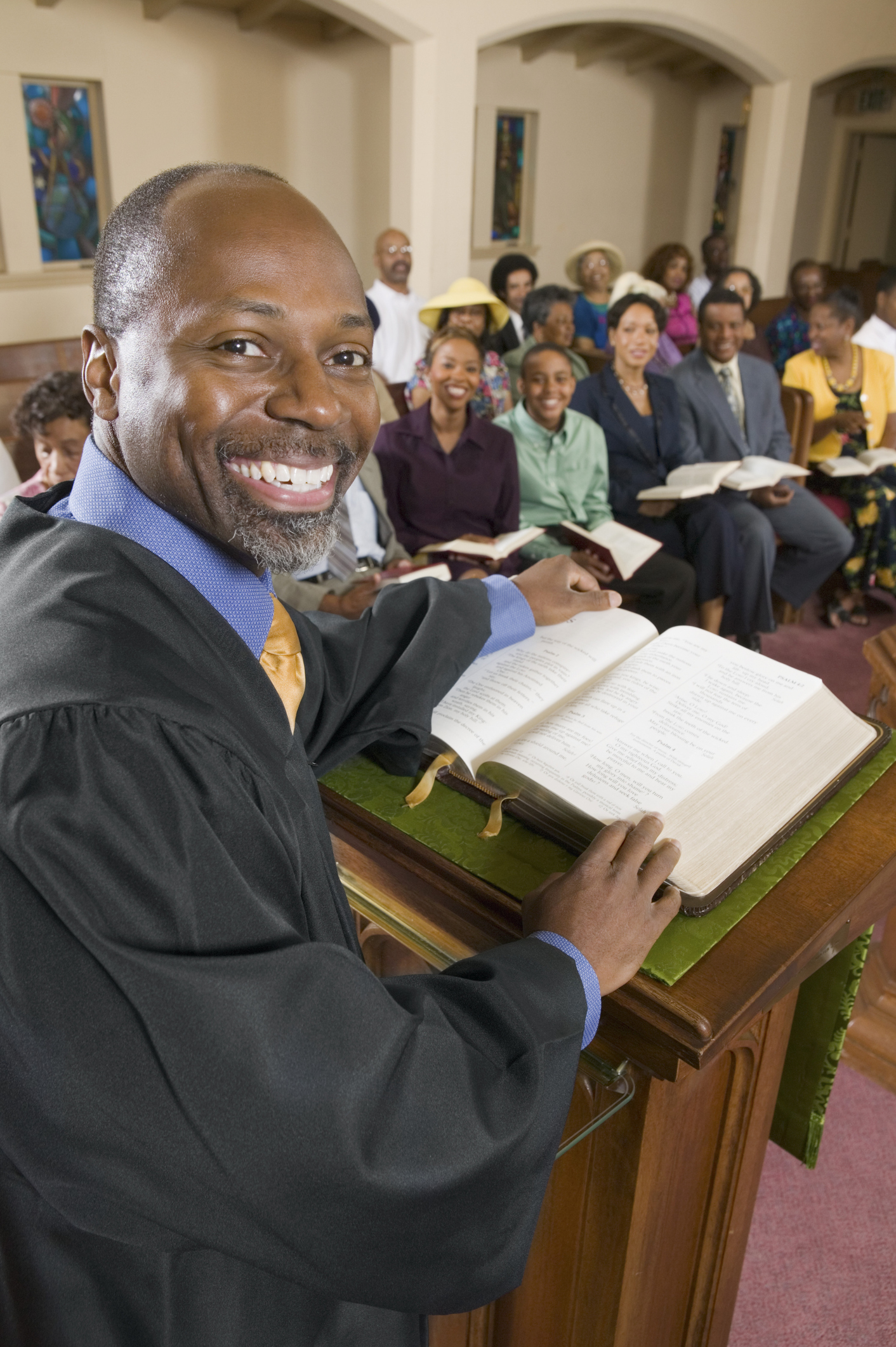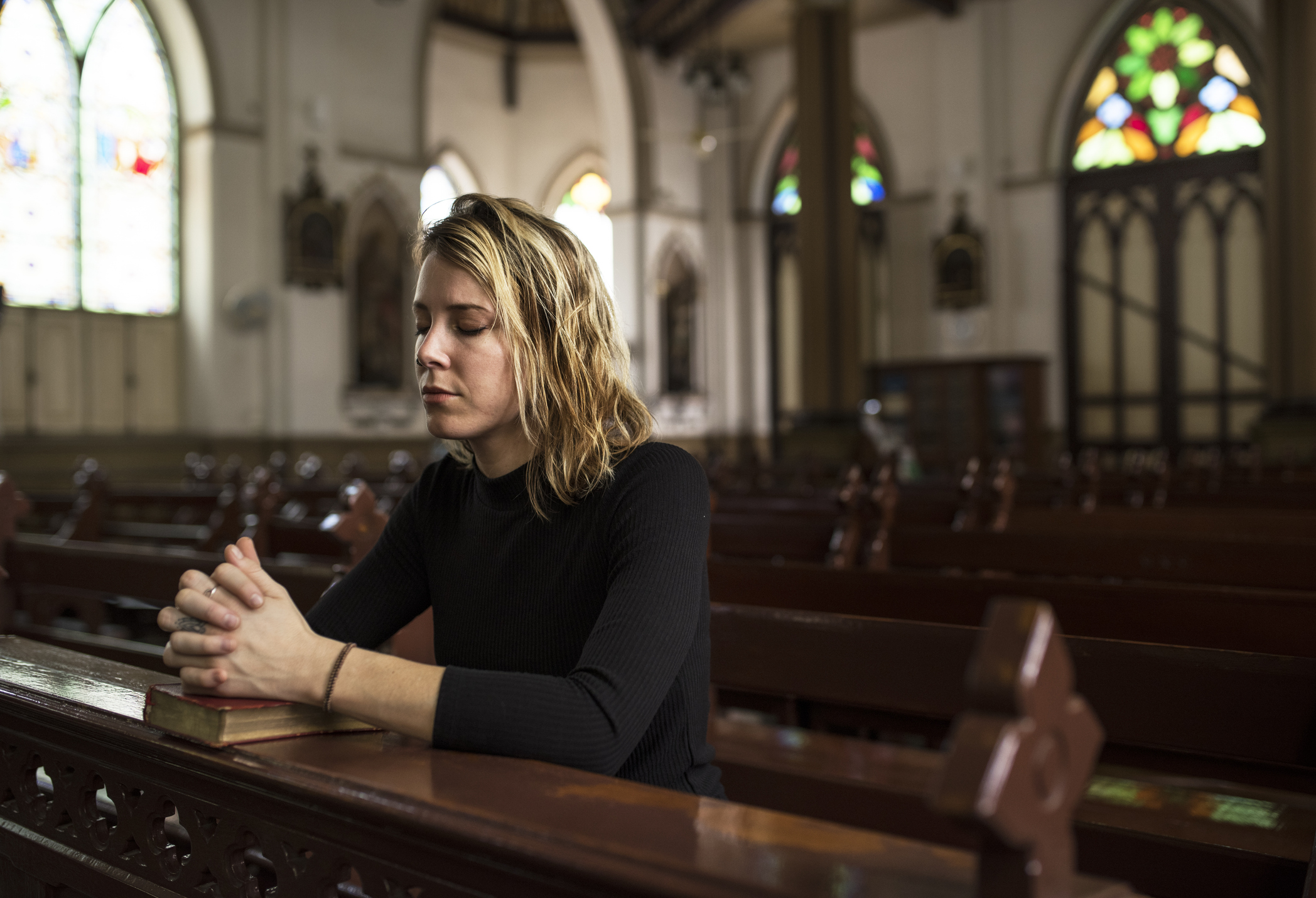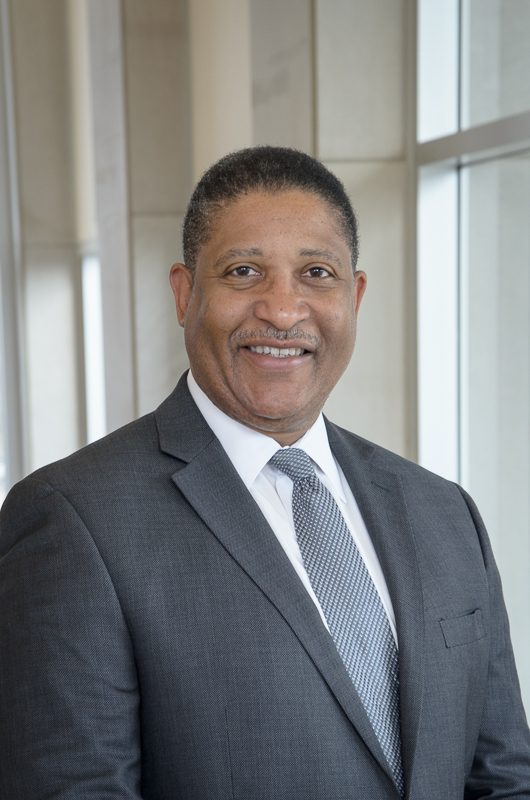A Conversation with Brian Williams, Lilly Endowment Inc.
Church dynamics are changing, lay leadership is evolving, ministry models are taking new forms, and at the center of it all is clergy wellness. To get a denomination-wide view of the church and ministry today, the Pension Boards interviewed Brian Williams, Program Director of Religion for the Lilly Endowment Inc., on his witness to this changing landscape.
Q: Looking across the denominations that Lilly Endowment has worked with over the years, what are some of the common challenges or obstacles that clergy face in prioritizing their own health and financial wellbeing?
We try to work with every conceivable denomination, faith tradition, and reformation that's out there. From the 60 organizations in the National Initiative to Address Economic Challenges Facing Pastoral Leaders (ECFPL), we've seen pastors struggle with asking for help due to a reluctance to appear vulnerable in front of the community they've been called to shepherd. When people have a sense that their pastors don't have what they need, they rally around them. That’s one of the most encouraging things that we have seen out of this initiative.
“…we've seen pastors struggle with asking for help due to a reluctance to appear vulnerable in front of the community they've been called to shepherd. When people have a sense that their pastors don't have what they need, they rally around them. That’s one of the most encouraging things that we have seen out of this initiative.”
Q: I understand that you were a pastor in the United Methodist Church in North Carolina and Indiana. From your perspective, what has changed in the church world since you were a pastor, and what were some of the ongoing challenges faced by clergy in the past compared to what you're seeing now?
The divisiveness is more prominent now than it was when I was pastoring. Pastors have a much deeper challenge, navigating the nuances of what it is they do and say. You could hear them walking on pins and needles in their sermons because if they say one thing a certain way, it could be taken out of context and suddenly they can get canceled.
Additionally, social media is utilized much more now. That puts pastors in a place where they can become deeply isolated. They might be around people, but still feel separated. They don’t feel free to express who they are. That has been one of the biggest changes that I've seen.
The economic issue is ongoing, affecting not just pastors. Many pastors accept their roles knowing they won't be adequately compensated but do so out of a sense of their call to ministry. This aspect hasn't changed, but awareness of it has. There are a lot of younger people today who see what it takes to be a pastor and opt to serve ministry in some other capacity. Especially after the pandemic, there are people who opt to have a better quality of life. In some cases, they’re leaving ministry. In other cases, they're taking on secular jobs or finding alternative ways to supplement their income.
Q: Do you see any challenges or barriers for younger ministers who come into ministry knowing that they will have to work at other vocations to support themselves?
In some cultures, multi-vocational ministry has always been the way to go. I don’t think that’s a new phenomenon. We’re finding that more of the traditional full-time pastor positions are going away, and more pastors are becoming multi-vocational. For that reason, it is a challenge recruiting younger people to consider a vocation of ministry. In some cases, it's a matter of realizing that they really want to be in ministry, but they're conflicted because of their friends. I think about my nieces and nephews whose peers work for Facebook or for Google, and they make these outrageous salaries. It's hard for younger ministers to reconcile that they want to do ministry but won't be able to do some of the same things their friends are doing because they’re going to be at such a disparate level economically.
Q: How is multi-vocational ministry shifting? Are clergy still pursuing their calls with vigor, or are they experiencing burnout?

The whole burnout scenario has been a conversation for quite some time. We have some initiatives that help address that. Burnout is clinically diagnosed like depression, but we’re finding out that a lot of pastors are just tired. They’re really exhausted from the day-to-day grind of constantly pivoting. One minute you’re trying to reconcile what’s happening in a finance meeting, the next minute you’re preparing a Bible study or your sermon.
“…when it comes to multi-vocation, we're hearing two different things. We're hearing that some pastors are finding fuel in their secular jobs.”
But when it comes to multi-vocational ministry, we're hearing two different things. We're hearing that some pastors are finding fuel in their secular jobs. It's a way for them to pivot and focus on something that is of interest to them, but they also know it's going to take care of some of their household needs. The other side we’re hearing is that pastors look forward to their pastoral duties because it adds meaning to their life that they don't get in their secular job.
Q: How are clergy balancing responsibilities as multi-vocational pastors? What strategies are clergy employing to maintain resilience and effectiveness in both roles?
It’s finding what we will say, finding the rhythms that are necessary to sustain oneself. For that reason, there are plenty of tools out there that are structured around learning how to value time. The way we've been indoctrinated is that the more effort you put in, the more you get out. So, we try to do more, do more, do more. But there is lots of research that suggests churches can do well for themselves by doing less, by stepping back, by taking a pause. We see examples of it in scripture where Jesus often went away to a quiet place to pray and catch some sleep.
We're also learning about mental health. There are so many needs out there, especially when it comes to clergy who find themselves in isolation. But if they knew about the tools and the resources that were out there, it would really help. It’s stigmatized in a lot of communities for a pastor to ask for help, and the pastor might be struggling with something and doesn’t want to share it. We found that pastors who have therapists often do very well, because they learn about different tools. They learn that they're not alone, and they gather other tools that can help them navigate through difficult times.
“Along with this is learning how to step away. When I'm going around to different places and talking to pastors, I always ask the question: When was the last time you took a two-week vacation?
Along with this is learning how to step away. When I'm going around to different places and talking to pastors, I always ask the question: When was the last time you took a two-week vacation? I often get a very long pause and they look up in the air and then back at me. They say, “Well, I don't think I've ever had a two-week vacation.” It’s important to learn how to incorporate what the body, mind, soul, and spirit really need.
Q: What specific trends or innovative approaches in clergy wellness are taking place today that are creating new sustainable approaches to ministry that you've experienced or witnessed?
There are a lot of resources out there on pastoral wellbeing, looking at a more holistic practice of what it means to be well and to lead well. If the leader of an organization is not healthy, then chances are the organization won't be healthy.

“If the leader of an organization is not healthy, then chances are the organization won't be healthy.”
There’s also the community practice of what it means to be the church that we're called to be today. Most churches are taking an opportunity to refocus on their mission. Why was this church organized in the first place? What does that then say about where we are now? The community may have changed, or the church may have had to relocate. Churches are finding that they are good connectors because they cultivate relationships in ways many other institutions cannot.
One of the most important lessons the pandemic showed, at least in my city, is that health care systems lacked credibility in certain communities, such as those with undocumented people or a history of medical apartheid. To reach these communities, health care systems found that you must have a relationship with congregations because churches are communities’ brokers of trust. You may not like church, or you may not care about church, but when it comes to something that is morally important, you will go to church. Churches hold this beautiful position of being the institutions that can lift the social equity and mobility of a community.
Q: In what ways do you see the landscape of clergy wellness evolving in the coming years?

What is evolving is a better sense of wellness. The Pension Boards and many benefit boards are embracing a more holistic understanding of wellbeing. They’re making resources more available, helping pastors and congregations practice Sabbath. I expect that to continue. I believe a new understanding of what it means to “do church” will also emerge. For so long we've been in this model of, “There's a building that we come to and Sunday's the primary day.”
Sunday may be a day for reflection, but during the week, many rural and small-town churches are active conveners. They ask the community what they want and help them communicate to state and local legislators the importance of addressing those needs, focusing on unmet basic needs and quality of life. This is a significant role these churches are playing, and these are the things I’m seeing right now.
Q: How is the model of ministry changing?
There are laypeople who are being asked to serve as pastors. The Catholic tradition has lay Ecclesia ministers, and the United Methodist Church has a similar practice. This trend is encouraging as the Bible states we're all ministers of the gospel, responsible for the great commission. Laypeople stepping up can galvanize congregations in unique ways. In my first pastorate, three congregations collaborated to reduce my preaching load, rotating services among themselves. The shortage of pastors allows the laity to see themselves in leadership roles.
Q: Is there anything else that you would like to add?
Churches hold incredible space, and many of them have buildings and land. There’s a move now to leverage that. They can be a community incubator, or they can hold office space for other organizations, maybe similar mission organizations. For example, a New Jersey church worked with the mayor to lease land because they found that there was a need for affordable housing. So now, in addition to feeding a couple hundred people every week, they have affordable housing as part of their property.
There's another church that allowed some of their extra land to be used for solar panels. There are creative ways to think about what it really means to be a disciple of Jesus Christ for the transformation of the world, to live that out and to show that there are different ways of creating sustainable cultures. There are different ways of living where everyone can have a good quality of life and not just some.

